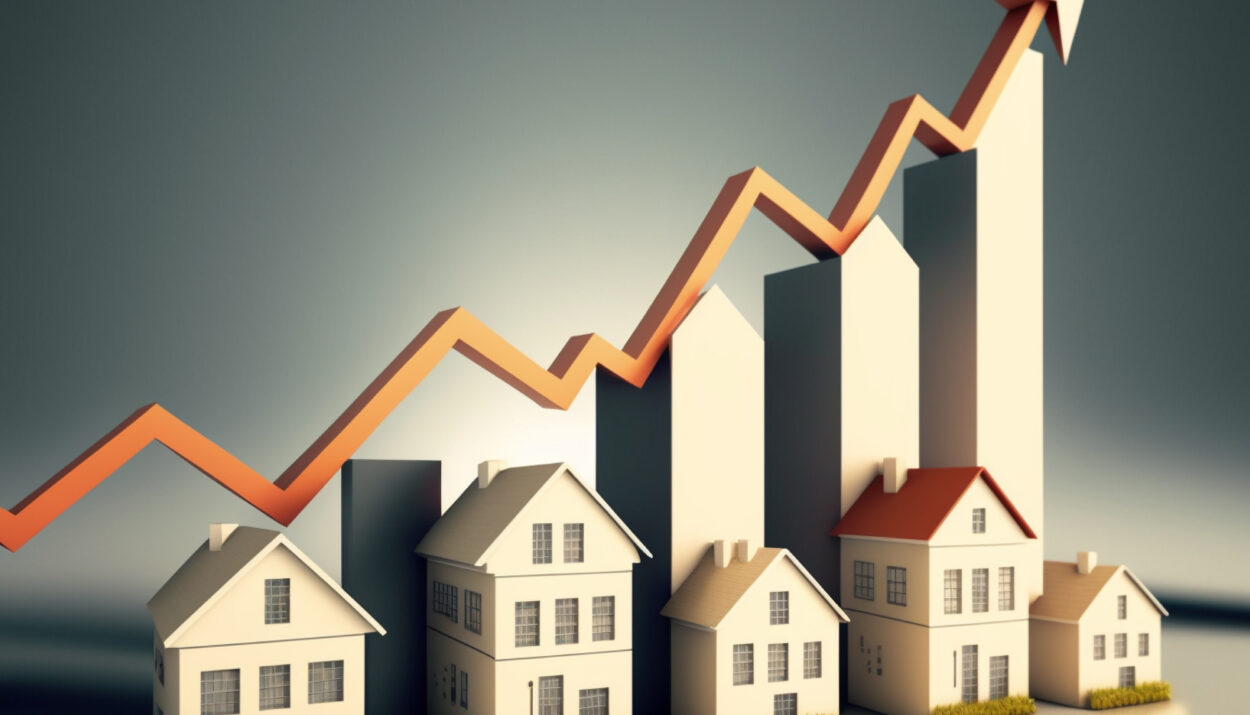The global real estate industry is one of the world’s largest and most important industries. From residential and commercial properties to industrial and agricultural land, are all included. As the industry constantly evolves, it is critical to stay up to date on the latest trends and developments.
In recent years, the real estate industry has faced a number of challenges, including the impact of the COVID-19 pandemic, economic uncertainty, and changing regulations. Despite these difficulties, the industry has proven to be resilient, and there are several reasons to be optimistic about its prospects.

DIGITAL HOUSE HUNTING IN REAL ESTATE
The pandemic pushed digitization in all industries, including the real estate market. Buying homes sight unseen is on the rise. Several buyers in 2020 bought their homes without ever setting foot inside due to the pandemic and the tight property market.
Statistics from REALTOR® show that 26% of all homebuyers are millennials. And that’s without even including the Generation Zs, who are rapidly approaching adulthood and have already become homeowners and buyers. These two generations are well-versed in all things digital so it should come as no shock to us that house hunting has gone digital. CNBC reports that 47% of buyers who’ve purchased in the past two years made an offer on a home without physically touring the property according to the newest LendingTree survey of more than 1,000 homeowners.
Virtually tour property was carried out through due to virtual capabilities such as:
3D Tours: The quantity and caliber of information readily available online enable purchasers to get a feel of a property without actually stepping foot in. With a sequence of panoramic images, virtual tours, for instance, enable buyers to see properties in 3D. Each room can be viewed from 360 degrees, and viewers may move about the house as if they were actually there. Due to this, customers are far more confident making blind purchases.
Drone videos: Drone videos are ultimately marketing tools that should produce leads. According to MLS statistics, ads with aerial shots sold 68% more quickly than those with merely regular photos. A drone video gives a home an advantage over the competition and gives sellers a much-needed competitive edge.
Virtual staging: Virtual staging is the hot new marketing tool in the real estate industry. After all, this completely digital solution is a more cost-effective alternative to traditional home staging.
According to the National Association of Realtors, 81% of buyers are able to better visualize a space as their next home when it is staged. According to the Mortgage Report, staged photographs on listing websites receive more views and thus rent/sell 73% faster than the unstaged competition.
It’s easy to see why: prospects prefer to see how their new home could look rather than seeing an empty shell. Nobody enjoys being in a cold and empty space. Beautifully staged homes will help prospects envision themselves in the space and in that home.
SUSTAINABLE AND ECOFRIENDLY REAL ESTATE:
The real estate industry is still one of the leading contributors to carbon emissions. Buildings currently account for 39% of global energy-related carbon emissions: 28% from operational emissions, which include the energy required to heat, cool, and power them, and 11% from materials and construction.
The rise of sustainable and eco-friendly building practices is one of the most significant trends in the real estate industry. Real estate developers are looking for ways to reduce their environmental impact as climate change becomes an increasingly pressing issue. This includes using eco-friendly materials in the construction of homes and commercial properties, installing energy-efficient appliances, and utilizing renewable energy sources.
More property developers are taking action to help decarbonize real estate, not only because it is good for the environment and people, but also because it is a great cost-cutting measure. Being more aware of a building’s carbon footprint can aid in the reduction of energy bills and maintenance costs. People enjoy better air quality in their living or working environment. Buildings are also more appealing to potential buyers, who are increasingly looking for properties that are energy efficient and sustainable.
HOME AUTOMATION
Yes, home automation is disrupting the real estate industry! From telling Alexa to play a song through the integrated sound system to monitoring activities on your property without physically being present. Automation is making a wave in the real estate industry.
People are searching for homes that are increasingly linked and automated as technology develops. This covers everything from voice-activated lights and appliances to smart security and thermostats. Businesses are utilizing cutting-edge technology to build more productive and affordable workspaces in commercial real estate.
As a result of technological innovation, the real estate sector has undergone some important changes. Smart homes are rapidly gaining in popularity due to the enormous comfort, convenience, and security they offer. One study from Statista shows that more than 400 million households will have smart home systems by 2025. This is definitely a great opportunity in the real estate industry.
LARGER HOUSES AND OUTDOOR SPACES
Larger houses with more outdoor space are here to stay. Though the COVID-19 pandemic is not so much of a threat as when it first emerged, the impact on the global real estate industry is still felt. With many establishments evolving how they work by adapting a hybrid working style. Therefore, more people are spending more time at home, demanding residential properties with balconies, rooftop terraces, and gardens. This has emphasized the importance, desirability, and value of having private outdoor space. People want larger houses with more outdoor space and home offices.
Although outdoor space has always been more favorable to homeowners, most of us have come out of isolation with a fresh appreciation for having access to nature. Everybody needs a location where they can go outside, take in some fresh air, get some vitamin D, and have room to move around and be active.
VIDEO MARKETING
Videos will continue to be a major marketing strategy for real estate firms. It’s time for you to start utilizing video marketing in light of the rising popularity of new social media platforms that are simply dedicated to videos (TikTok is an example). Also, live videos have a special significance when it comes to video marketing because they enable you to establish a more personal connection with your viewers.
In conclusion, as the real estate sector is always developing and progressing, real estate developers must keep up with these changes and adopt new strategies to stay relevant.
Check out our properties







